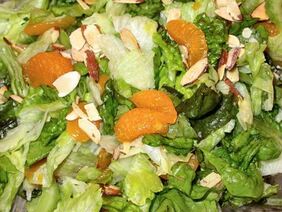|
|
|
30/8/2023 0 Comments dr paul kouchakoff's research: why we should all start our meal with a raw salad In the realm of nutritional science, few researchers have made as significant a contribution as Dr. Paul Kouchakoff, at the institute of Clinical Chemistry in Lausanne, in the 1930’s. His groundbreaking work on digestive leukocytosis has shed light on a previously unexplored aspect of the body's immune response to food. Dr. Kouchakoff's studies have revolutionized our understanding of how our immune system reacts to different dietary components and have profound implications for our overall health and well-being. The Discovery of Digestive Leukocytosis Dr. Paul Kouchakoff, a Swiss-born physician and researcher, embarked on a journey to explore the intricate relationship between food and the immune system. In the early 20th century, Kouchakoff conducted a series of experiments aimed at investigating how various foods triggered immune responses within the body. His most notable finding came in the form of digestive leukocytosis, a phenomenon in which the consumption of certain foods led to a temporary increase in white blood cell count in the bloodstream. The white blood cells (leucocytes) start rushing to the scene as soon as food enters the mouth. Leukocytes, commonly known as white blood cells, are an integral part of the immune system. They play a pivotal role in defending the body against harmful pathogens and foreign substances. Kouchakoff's studies revealed that when individuals consumed highly processed or refined foods, their white blood cell count surged, indicating an immune response to the ingested substances. Some of the worst offenders in their research were homogenized or pasteurized foods and preserved foods. Examples of these were milk, white flour, margarine, sugar, chocolate, and candy. Understanding the Mechanism Dr. Kouchakoff's research suggested that digestive leukocytosis was more pronounced in response to foods that were heavily processed, heated, or refined. This response, he theorized, was a result of the body's recognition of these altered food components as potential threats. In contrast, consuming whole, minimally processed foods led to a much milder immune response. Kouchakoff proposed that the body's reaction to processed foods was akin to its response to infection or injury, possibly placing a strain on the immune system over time. Implications for Health Dr. Kouchakoff's findings have significant implications for our dietary choices and overall health. His research points to the potential benefits of opting for whole, unprocessed foods over their refined counterparts. By doing so, individuals may be able to reduce the burden on their immune system, allowing it to focus on more pressing threats like infections and diseases. Furthermore, Kouchakoff's work underscores the importance of a balanced and diverse diet rich in nutrients. Consuming a variety of whole foods – including fruits, vegetables, whole grains, and lean proteins – may help mitigate excessive immune responses triggered by processed foods. This approach can contribute to long-term health by supporting immune function and reducing the risk of chronic diseases associated with inflammation. The implications of leucocytosis are that every time white blood cells rush to the intestines to deal with cooked food the rest of the body is left undefended. This puts a continual strain on the immune system. Kouchakoff found that when food is eaten raw… digestive leucocytosis does not occur. In addition, Leucocytosis does not occur if you eat something raw before you eat something cooked. Raw Foods leave the white blood cells free for other tasks and save the body the effort of a defensive action, thereby strengthening its resistance to disease. There are two ways to best combat digestive leukocytosis. The first, and most effective, is to eat live food with meals. There is debate as to how much live food needs to be eaten to prevent this reaction. Some say the evidence suggested as low as 10% and others say 50% of the meal needs to be live and uncooked. A secondary way to combat the elevation of white blood cells is to thoroughly chew one’s food. Either way the conclusion is that we must eat live foods with every meal. This research leads the to the conclusion that our habits of food preparation may be a large part of our health problems. If one is suffering from any immune malfunction (weak immune system or autoimmune disease) then it behoves that person to eat 50% live foods in their meals as well as take their time to chew their food. Modern Implications and Continued Research While Dr. Kouchakoff's research has laid a crucial foundation for understanding digestive leukocytosis, ongoing research in the field of immune-nutrition has expanded upon his findings. Scientists continue to investigate the intricate connections between diet, gut health, and immune responses. Advances in technology and a deeper understanding of the human body's complex processes have led to a more comprehensive exploration of how various dietary components influence immune reactions. Conclusion Dr. Paul Kouchakoff's pioneering research on digestive leukocytosis has transformed the way we perceive the interplay between food and our immune system. His discovery of heightened immune responses to processed foods emphasizes the importance of choosing a balanced and nutrient-rich diet. As we continue to unravel the complexities of immune-nutrition, Kouchakoff's legacy serves as a reminder that the foods we consume play a crucial role in shaping our health and well-being.
0 Comments
Leave a Reply. |
AuthorBarbara is a qualified nutritionist offering Health, Nutrition & Lifestyle Counseling. She gives Healthy weight loss advice and promotes the Mediterranean diet. She is the author of the Med Life Diet - creating healthy lifestyle habits and attitudes for life ! Archives
April 2024
|
 RSS Feed
RSS Feed
